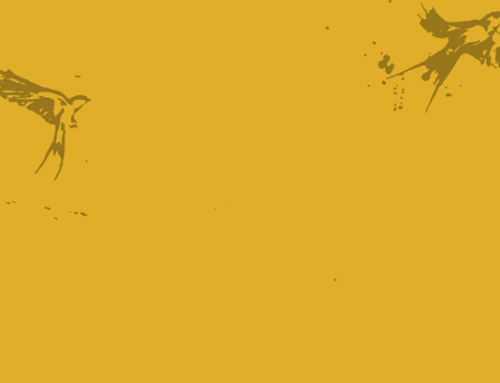According to official statistics, today in Kyrgyzstan there are 180 thousand people with disabilities, 30 thousand of them are children under 18 years. These children are particularly vulnerable and often isolated from the rest of society. Kindergartens very rarely accept them and schools unwillingly enroll them. More than half of them do not desolate home at all.
It is mostly tough on children with disabilities in rural areas where in addition to social stigmatization they face face infrastructure problems: the lack of special transport, ramps and handrails.
In very rare cases parents of a child with disability can leave work and spend all their time with him. Many families are unaware of their rights and available support.
Adilet Manatbekov lives in Leninskoe village. He is nine years old. He studies in the second grade of the secondary school named after Lenin. Adilet finds it difficult to move unassisted, he needs physical support. His mother is usually beside him. Adilet loves his school. His teacher helps him not only to learn but communicate with his classmates as well. After school Adilet shares impressions of the past day with his family using gestures and cards. Adilet hasn’t spoken since birth.
«One day he came home and began showing us the traffic light with the help of cards and toys – they were told about traffic rules in school. Adilet explained everything to us very well. He is a child like everyone else», his mother says.
Adilet’s mother accompanies him to the classes and helps him during the breaks. To stand up from the desk or go to the toilet, Adilet needs support: special handrails. None of them can be found either in the classroom or in the corridor.
For several years the Public Association of the parents of children with disabilities «Bala Tilegi» (translated from Kyrgyz «Bala Tilegi» means «the child’s dream») held meetings with deputies of local kenesh: the parents told the deputies about the difficulties the children with disabilities were faced with and asked for their help. The negotiations produced no results.
In 2017, «Bala Tilegi» Public Association participated in the study «Creation and provision of educational services for children and adolescents with disabilities (WD) from rural areas at the expense of the local budget». The study was supported by the Soros Foundation– Kyrgyzstan.
Thanks to participation in this project, the organization was able to analyze the budget expenditures of Lenin ayil okmotu for three years. “Bala Tilegi” representatives learned to use open data (budget.okmot.kg, minfin.kg), make official requests, referring to existing laws (the Law of the Kyrgyz Republic “On access to information administered by the local self-government”).
As a result of their own investigation, the Public Association of the parents of children “Bala Tilegi” learned that the Leninsky ayil okmotu, in whose territory the Association is located, has a fairly large budget if compared with other ayil okmotus of the Alamudun district. (In 2017, the ayil okmotu revenues accounted for 40 million KGS).
Having specific data on expenses and incomes, the organization began to negotiate with local authorities more confidently and efficiently. The negotiations finally bore fruit.
By early 2019, an estimate was made for the installation of ramps and railings along the corridor and in the classroom in Lenin school where Adilet studies. Moreover, from the local budget the funds were allocated to arrange transportation of children to attend schools. According to Article 36 of the Law of the Kyrgyz Republic “On Education”, the arrangement of transporting children to educational institutions and to the places of their actual residence is within the competence of local authorities (LSGB).
Participation in the study helped the organization build a strategy to promote the allocation of funds for the creation and maintenance of services for children with disabilities at the local level. And Adilet and other children with disabilities in the Alamudun district got more chances for socialization and education.
Aisen is sure that robots will pretty soon do the dirty jobs for human
“Genius Olympiad 2018” is a large-scale event and a great event in my life. I am very proud that our team was one of seventy-four participants in this Olympiad. I am proud that we have worthily represented our country and demonstrated our ideas. The work of the Olympiad was held in several categories: art, science, literature and robotics. Our category, «Robotics», is considered to be most time consuming. For several weeks we prepared our robots for the trip. The robot had to be able not only to move but clean the territory and remove rubbish as well.
We had to “repair” our work many times and rectify the details. In the long run, we took two robots to the Olympiad. Much to our regret, one of them broke down on the way and we had to present the only robot in the form of a travelling crane at the Olympiad.
The competition was held in five rounds. In each round there were separate tasks for robots. We had to present our vehicles in style and tell the jury members about their features. While presenting the robot that «survived», I understood that it was really not bad. It coped with all the tasks, and our team achieved good results: we took a decent 4th place among 74 countries.
On the final day of the Olympiad, my team was awarded with Certificates Merit and our work was marked as innovative.
During the Olympiad I saw a lot of interesting ideas and presentations by teams represented in their categories. Each of these presentations covered the problem of ecology and the environment both within the country and abroad.
For me, work in this project enabled to unlock my creative potential and express myself both individually and in group. Moreover, I understood that the quality of the project largely depends on a certain initial readiness level of its authors. Surely, one trip for personal growth is not sufficient, so I will do my best to participate in such large international competitions to deepen my knowledge, experience and practical skills not only in robotics but in other areas as well. I will also try to go to the” Genius Olympiad” next year. To that end, I already have experience.
I have ideas for improving my robot and increasing its functionality for practical use in environmental clean-up. Participation in the Olympiad enabled me to take a new look at the problem of ecology. On my return I decided that I would be more actively engaged in the activities for a clean environment in my school.
I will continue to deepen my knowledge in animation and robotics, and focus the experience and skills on the activities for environmental safety not only within my own country but throughout the world. By creating a smart robot, you can free many workers from hard work. Moreover, robots can be involved in sorting and processing rubbish, creating special enclaves for sterilizing dirty air and sea flows, and cleaning the bottom of the deep sea and oceans from marine waste and rubbish as well. I am sure that very soon all this will be brought to life.
I spent almost two weeks in a distant and beautiful country, a country I had dreamed of since childhood. When I learned about the upcoming Olympiad of geniuses, particularly on the problem of ecology, I was enthusiastic about participating in it. As I am fond of animation, the first thing that popped in my head was to participate in the animation category. But I was late for the presentation of the work in animation. Therefore, we together with our computer science teacher decided to participate in the “Robotics” category. And I have no regrets about it.
The Olympiad itself was held in the beautiful city of Oswego which is located on the shores of Lake Ontario. The places we visited in Oswego were well-kept and beautiful!
The program of the Olympiad was rich in presentations and reports. Moreover, there was an extensive program of various entertainment and trips. Of course, I do remember the trip to the famous Niagara Falls, I was deeply impressed.
If I say that I really liked the trip to America, it will sound trite. This trip blew my mind. I saw a lot, heard a lot and I was nearly drowned in the flow of information. The most important thing is that I met wonderful people.
Besides the Oswego Olympiad, we visited five states, New York, Washington, Boston, Los Angeles, the famous MIT universities, Harvard, the White House, the United States Capitol and Hollywood with the Walk of Fame.
I liked America for its purity and simplicity, the people there are just wonderful. I understood how they respect their country and how carefully they protect their nature. I would be happy if we care the same way about our country”.
Dinara Alyaeva believes that education is a vital component for the medical and social rehabilitation of children with cancer.
As part of our trip to D.Rogachev NMRC Hospital School in Moscow, a Memorandum of Cooperation was signed between the Rogachev NMIRC and the Ministry of Education and Science of the Kyrgyz Republic.
The memorandum signing was fulfilled by the participation of the director of D.Rogachev NMRC PHOI, academician Rumyantsev AG, the head of the project “Teach & Know” PhD Sharikov S.V. and Minister of Education and Science of the Kyrgyz Republic Kudaiberdieva G.K.
According to this document, the creators of the innovative educational platform «Teach & Know» (Moscow) will provide comprehensive methodological support in creating conditions for the education of children undergoing long-term treatment. This project was named “Teach & Know — Kyrgyzstan”.
The implementation of the hospital school will provide seriously ill children that are on treatment for a long time with the access to education. Academic and preschool education is a vital component for the comprehensive medical and social rehabilitation of children with cancer.
Classrooms for hospital schools will be allocated in a new building currently under construction at the Children’s Cancer Center in Bishkek.
The Ministry of Education and Science of the Kyrgyz Republic made financial calculations to allocate funds from the budget for the hospital school teachers.
In the summer of 2018, the staff and technical project for equipping the hospital school was being prepared.
As part of the project, a significant attention is also paid to the preschool development of children, as this category of patients prevails.
The delegation included representatives of the Children’s Educational Center “Dino” who engage with the children of preschool age at the Children’s Department of the National Center for Oncology and Hematology of the Kyrgyz MoH.
The delegation from Kyrgyzstan included the executive director of Public Association “Helping is easy” Alyaeva D., director of the Children’s Educational Center “Dino” Keldibekova L., and preschool teachers Shmalyuk G. and Redina E.



